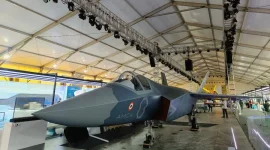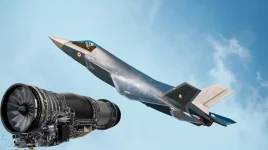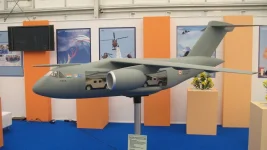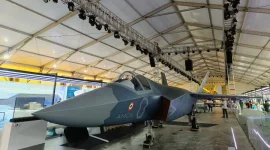The Indian Ministry of Defence has finalized significant contracts totalling ₹2,500 crore aimed at strengthening the nation's military capabilities. Announced on Thursday, these agreements involve the procurement of the Nag Missile System (NAMIS), a sophisticated anti-tank weapon, and numerous light vehicles for the armed forces.
A major part of this initiative is a ₹1,801-crore contract awarded to Armoured Vehicle Nigam Limited (AVNL) for the supply of NAMIS. This deal facilitates the integration of the advanced anti-tank system into the army's mechanised infantry units.
Developed domestically by the Defence Research and Development Organisation (DRDO), NAMIS features the third-generation Nag anti-tank guided missile (ATGM), known for its "fire-and-forget" and all-weather capabilities. The army had previously received approval for acquiring 13 Nag missile carriers (NAMICA) along with 293 missiles.
In addition to the anti-tank systems, the ministry inked agreements with two Indian manufacturers, Force Motors Ltd and Mahindra & Mahindra Ltd. These contracts cover the supply of approximately 5,000 light vehicles designed to enhance the mobility of military personnel across diverse terrains and operational scenarios.
Highlighting the importance of the NAMIS acquisition, the defence ministry stated it represents a "significant milestone in the modernisation of the anti-tank capability." Officials emphasized that NAMIS is among the most advanced systems available to counter enemy armoured vehicles, crediting its sophisticated sighting systems and fire-and-forget missiles for improving firepower and lethality, thereby boosting the Indian Army's operational readiness.
All these procurements fall under the Buy (Indian-IDDM) category, which stands for Indigenously Designed, Developed and Manufactured. This category is prioritized under India's defence acquisition policy to vigorously promote self-reliance and nurture the domestic defence industry, aligning with the 'Make in India' and 'Atmanirbhar Bharat' initiatives.
Regarding the light vehicles, the ministry noted their crucial role in ensuring troop mobility under various operational conditions and across different types of terrain encountered by the armed forces.
The ministry further elaborated that both the NAMIS and light vehicle acquisitions will significantly contribute to indigenisation and bolster national defence manufacturing capacity. It was also pointed out that these projects are expected to generate substantial direct and indirect employment opportunities, particularly by engaging Micro, Small, and Medium Enterprises (MSMEs) in the supply chain for manufacturing components.
These latest deals were announced just a day after the defence ministry signed two other major contracts worth ₹6,900 crore. Those agreements, with Bharat Forge Limited and Tata Advanced Systems Limited (TASL), were for 307 locally produced artillery guns and associated high-mobility vehicles, further underscoring the push towards modernising the army's firepower with indigenous solutions.
In recent years, India has implemented several measures to foster self-sufficiency in the defence sector. Key strategies include imposing phased bans on the import of various weapons and platforms, allocating a specific portion of the defence budget for domestic procurement, raising the Foreign Direct Investment (FDI) limit in defence manufacturing to 74%, and undertaking reforms to improve the ease of doing business for defence companies.
This focus on indigenisation was reflected in the Union Budget announced on February 1, which allocated over ₹6.81 lakh crore for defence. Notably, ₹1.8 lakh crore was earmarked specifically for military modernisation, with a commitment that 75% of this capital outlay would be spent on procuring equipment from Indian manufacturers.





